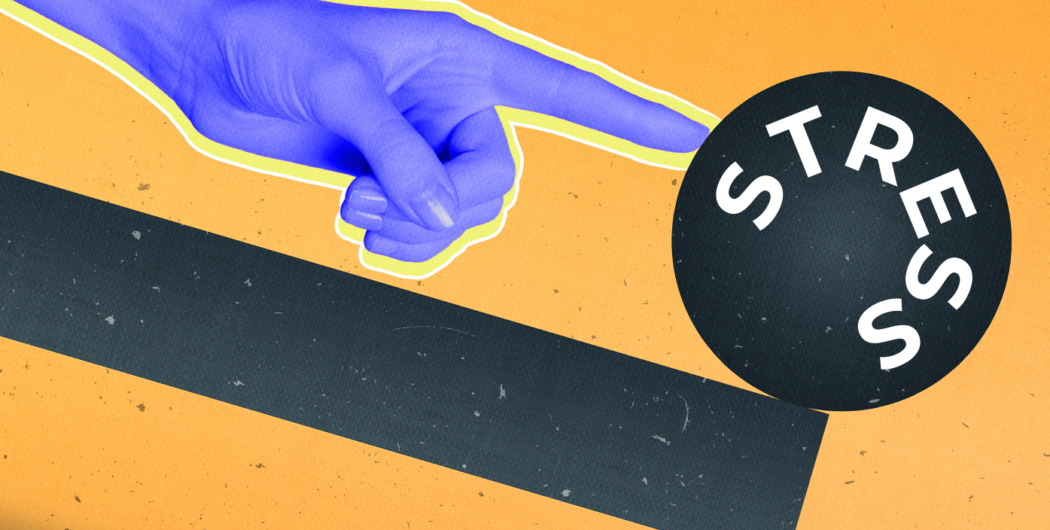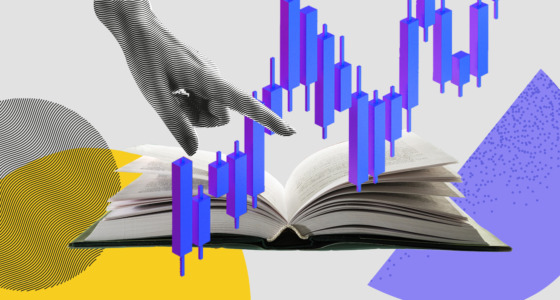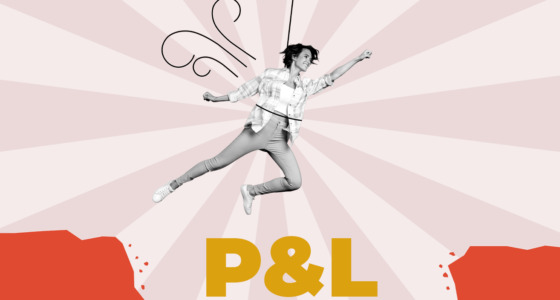

Research has shown that dark chocolate can lower the stress hormone cortisol as well as the “fight-or-flight” hormones known as catecholamines. The results were evident in students who ate an average-sized bar (about 40g) each day for two weeks.
Will a chocolate bar help you manage trading stress? Maybe. But it’s also worth taking other measures—for instance, following these six recommendations.
1. Be aware of your self-talk
Even the most successful and experienced traders deal with negative self-talk. It’s not uncommon to feel doubt, fear, blame, or judgment, especially when you face trading losses (which you can’t avoid at all times).
You need to be aware of your negative self-talk. While you can’t stop your thoughts, you can change how you talk to yourself.
- Instead of blaming yourself for anything bad that happens with no evidence, learn from your mistakes.
- Instead of turning to the worst-case scenario, create a backup plan.
- Instead of filtering out any positive in your life, remind yourself of instances when you got things right.
2. Maintain a healthy work/life balance
Financial markets are constantly moving. But just because relevant events are happening non-stop doesn’t mean you should always be present, too. It’s important to establish some healthy boundaries for your trading activity to ensure it won’t take over virtually every moment of your life.
Do whatever needs to be done to switch off. For some, it may involve setting blocks of time for different tasks. Or, you might disable your phone notifications after trading hours. If you have trouble separating your trading activity from your regular home life, make plans that force you to go outside.
3. Lower caffeine intake (as well as other stimulants)
People often talk about needing their coffee to function. There is some truth to that—caffeine can be great at times, especially if it is integrated into your routine and helps you tune in. But in all seriousness, it can be detrimental to your physical and mental health.
Too much caffeine can make you hyperactive and elevate your feelings of panic. With trading being stressful as is, an extra cup or two will make things even worse. The same rule applies to energy drinks, nicotine, and other “uppers” (anything that temporarily increases alertness).

4. Don’t trade outside of your skill level
No matter how skilled and experienced you are, everyone has their limits. As a beginner, you should keep your trades small. But even advanced traders should be aware of where their competence ends. For example, some strategies are just too complex, and some markets are too new or exotic.
If you don’t feel confident making a trade, it’s a sign to opt out. Otherwise, you’ll feel anxious as long as this position stays open. Now, imagine opening multiple trades that make you feel anxious —that is a recipe for burnout and possibly a big hit on your account balance.
5. Stop multitasking
You might find multitasking easy at first, but as days progress, it’s likely to take a toll on your body and mind. Studies show that when the brain is constantly switching gears to bounce back and forth between tasks, you’re more likely to make mistakes.
A lack of attentiveness and mindfulness can also affect your productivity. So, you may think that you’re getting more done; but in reality, you’d spend less time completing mono-tasks one after another.
Instead of looking at multiple tabs at the same time, focus your attention on a single chart. When you make sense of the data it provides, move on to the next task.
6. Learn to take it on the chin
If you let your mistakes pull you down, it’ll do nothing but inflict unnecessary stress on yourself and others.
This boxing metaphor, “taking it on the chin,” means accepting an unpleasant or difficult situation bravely. Of course, you still need to accept full responsibility for your role in the outcome. But you also need to learn your lesson and move on.
Bottom line
Sometimes, traders have the tendency to inflict stress upon themselves. Other times, it’s a bad day on the market that puts you in a downward spiral. But you don’t have to suffer through it—you can learn how to handle high-pressure and stressful situations in a healthy way.
These six stress busters can be a game-changer for your trading journey. They can help you manage stress factors coming both from the outside and from within you.






